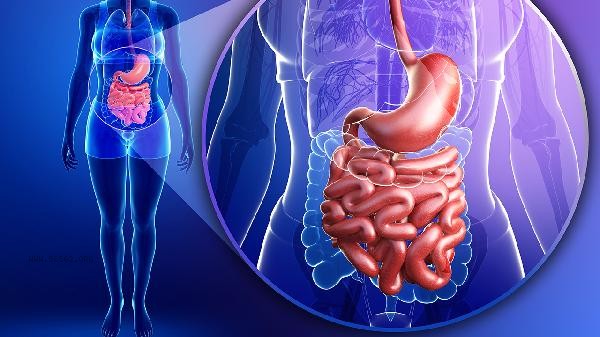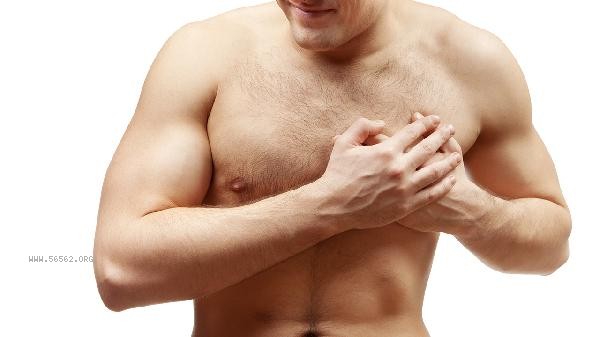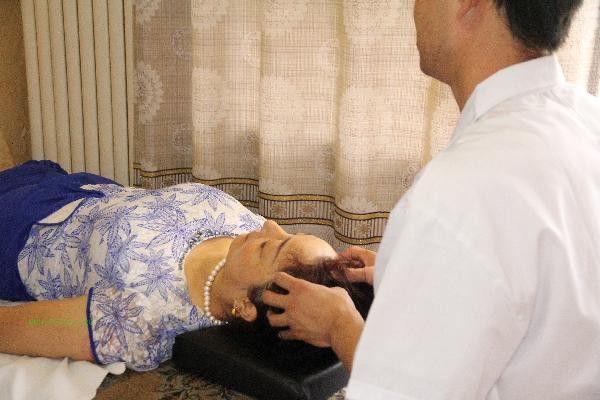The chest pain caused by reflux esophagitis usually presents as a burning sensation behind the sternum, which may be accompanied by symptoms such as acid reflux and belching. The pain may radiate to the neck or back. Reflux esophagitis is mainly caused by the stimulation of esophageal mucosa by gastric acid reflux, and common causes include dysfunction of the lower esophageal sphincter and increased intra-abdominal pressure.

1. Burning like pain
The burning sensation behind the sternum is a typical feature of reflux esophagitis, and the pain often occurs 1-2 hours after meals or when lying flat at night. Gastric acid reflux directly stimulates the nerve endings of the esophageal mucosa, causing a burning sensation that extends from below the xiphoid process to the middle of the sternum. Some patients describe it as burning or spicy pain. The worsening symptoms may be related to consuming high-fat diets, caffeine, or acidic foods.
2. Radiation pain
About 30% of patients will experience pain radiating to the neck, jaw, or back, which is easily confused with angina. This type of referred pain originates from the overlap of nerve innervation between the esophagus and the heart, but unlike angina, reflux chest pain is usually not accompanied by cold sweat or a feeling of impending death, and can be relieved by taking acid suppressants such as omeprazole enteric coated tablets.
3. Position related
Chest pain is significantly aggravated when bending over, lying down, or increasing abdominal pressure, and can be relieved when standing upright. This is related to the weakening of gravity, which makes gastric acid more prone to reflux. Patients often complain of waking up with pain at night and needing to raise their pillows. Some may also have nighttime coughing or hoarseness, indicating possible laryngeal reflux.

4. Accompanied by reflux symptoms
Chest pain often occurs simultaneously with acid reflux and belching, and a sour smell can be smelled in the mouth. When gastric contents reflux into the esophagus, it may stimulate the vagus nerve and cause an increase in reflexive saliva secretion, manifested as sudden mouth watering, medically known as reflux saliva secretion. Severe cases may observe food residue reflux into the mouth.
5. Pseudo angina
Some patients experience chest pain that is compressive and lasts for several minutes to hours, with no abnormalities detected on electrocardiogram. This pain is caused by esophageal spasm or mucosal inflammation stimulation, which is different from true coronary artery ischemia, but needs to be differentiated through gastroscopy or 24-hour esophageal pH monitoring. You can follow the doctor's advice to use magnesium aluminum carbonate chewable tablets to neutralize stomach acid and relieve symptoms. Patients with reflux esophagitis should avoid overeating and eating before bedtime, quit smoking and limit alcohol consumption, and reduce foods such as chocolate and mint that lower the pressure of the lower esophageal sphincter. Overweight individuals need to control their weight and raise the head of the bed 15-20 centimeters during nighttime sleep. If chest pain persists or if there are warning symptoms such as difficulty swallowing and weight loss, it is necessary to seek timely medical attention from a gastroenterologist to rule out complications such as Barrett's esophagus. Daily recording of chest pain onset time, causes, and relief methods can provide reference for doctors' diagnosis.








Comments (0)
Leave a Comment
No comments yet
Be the first to share your thoughts!